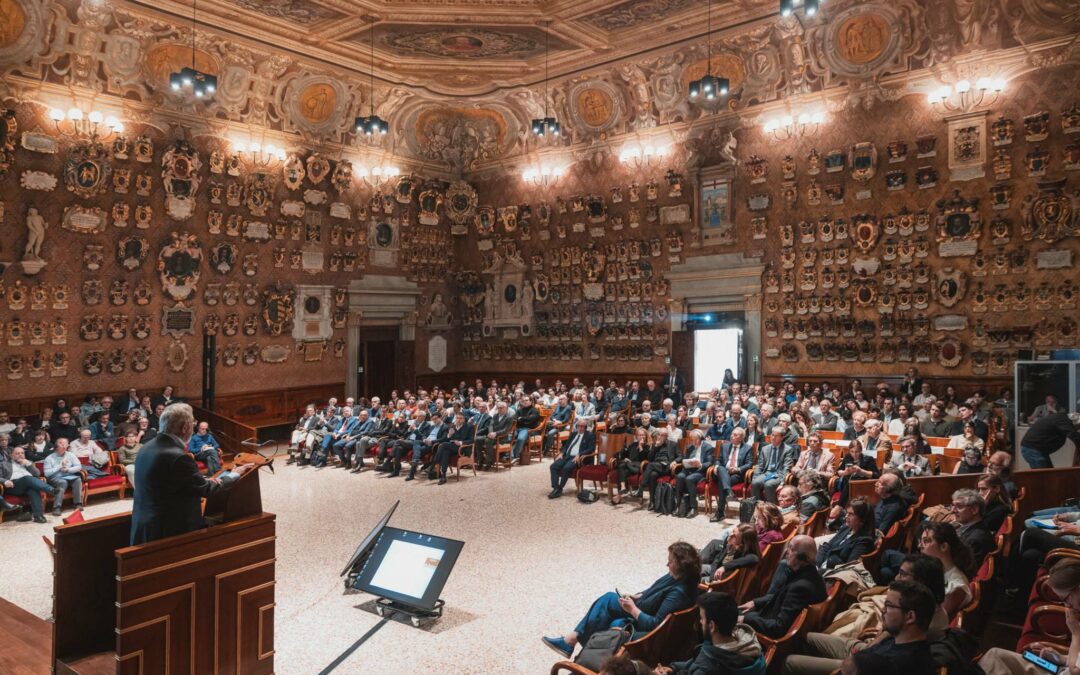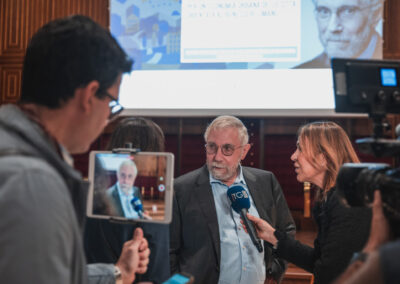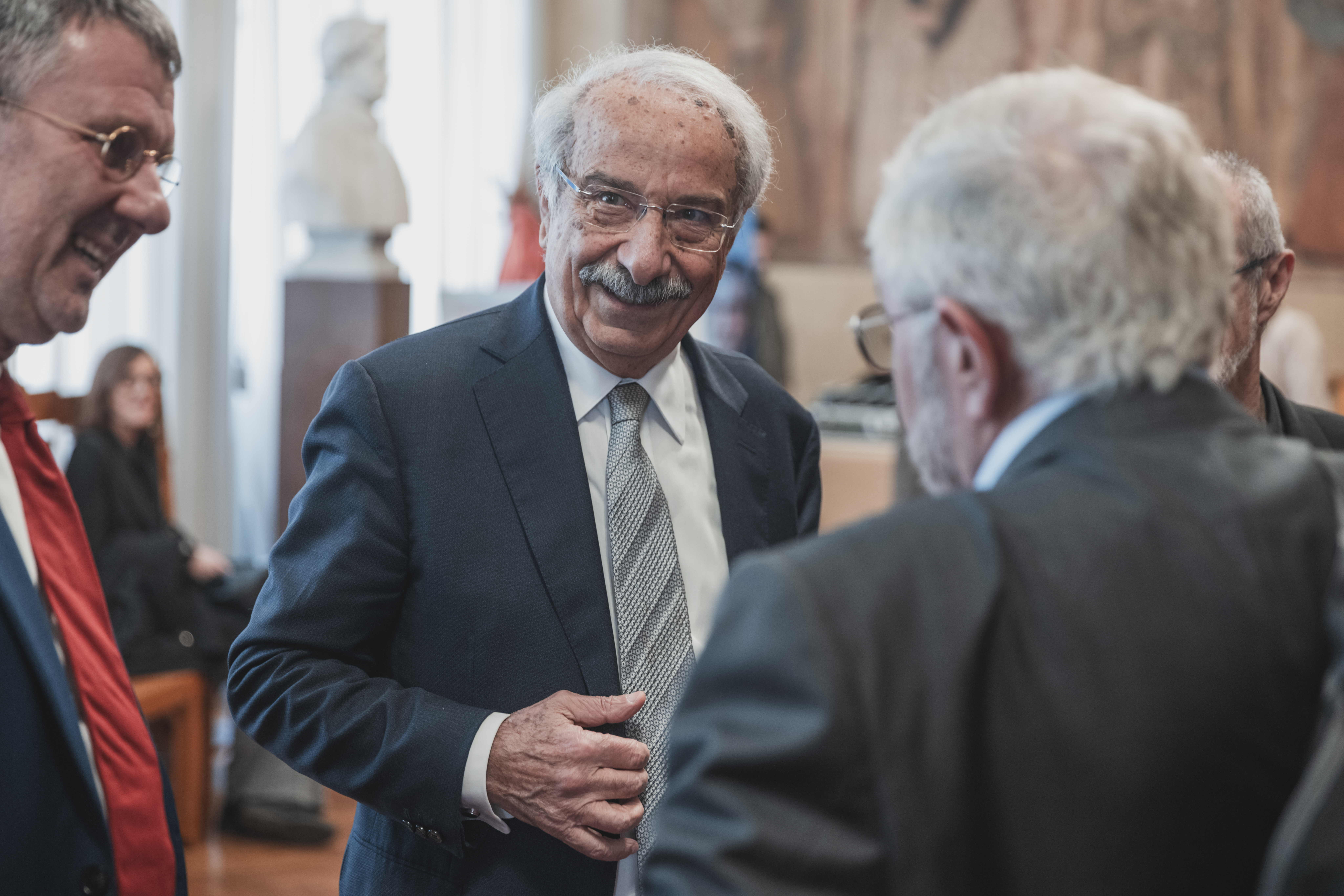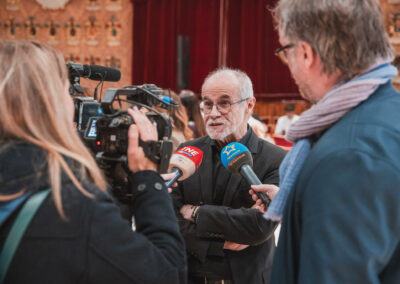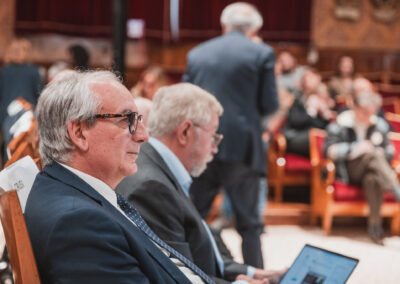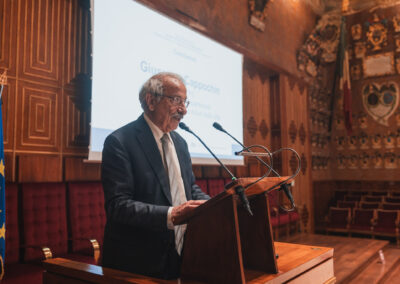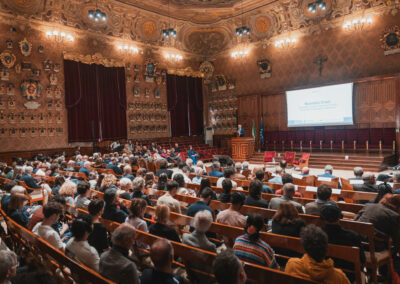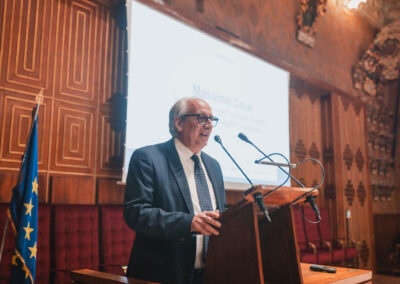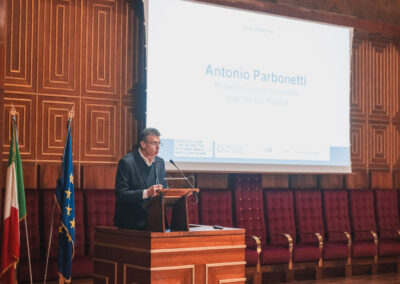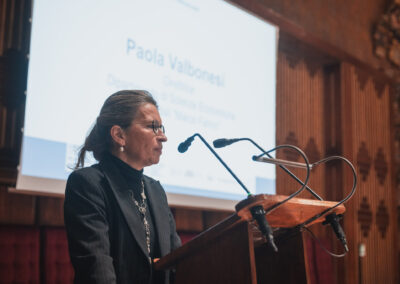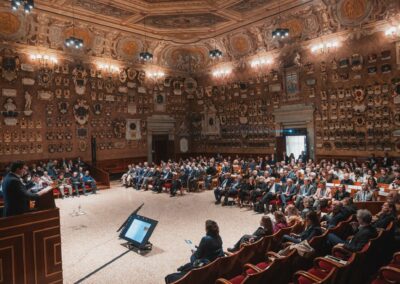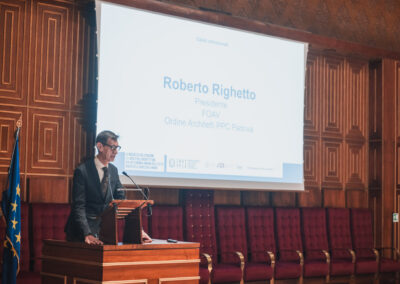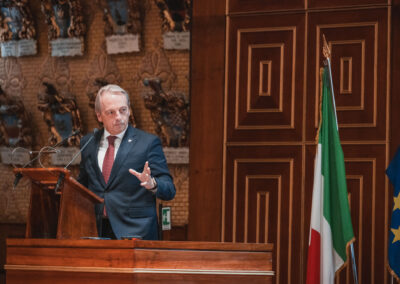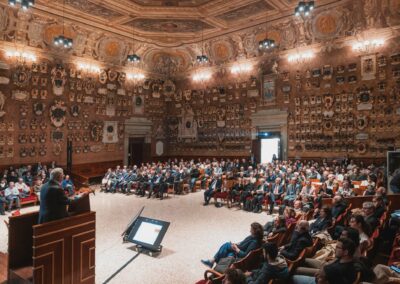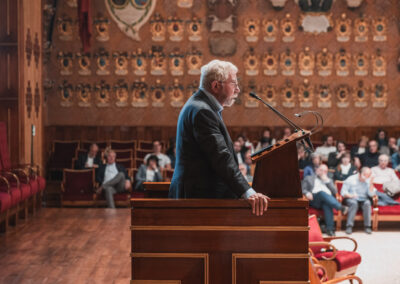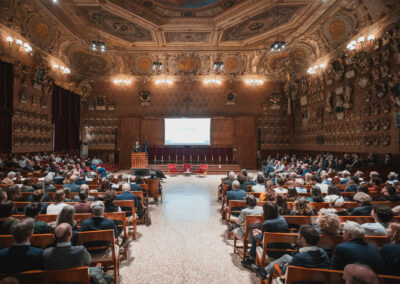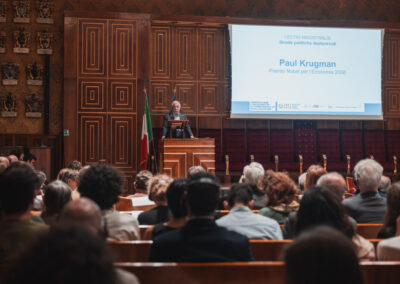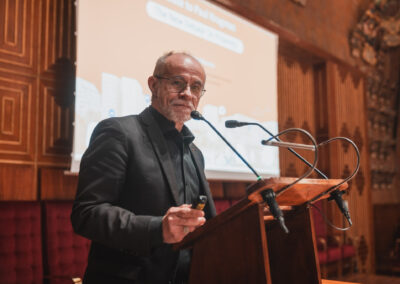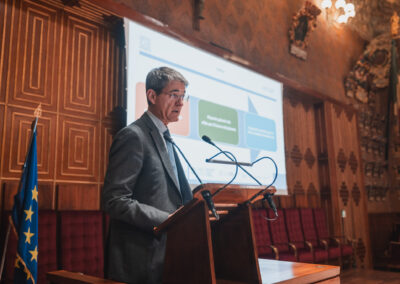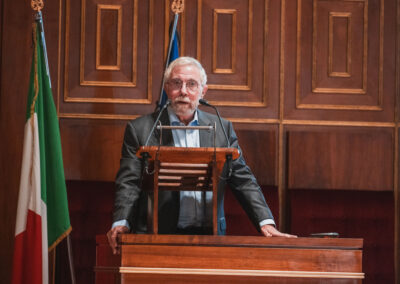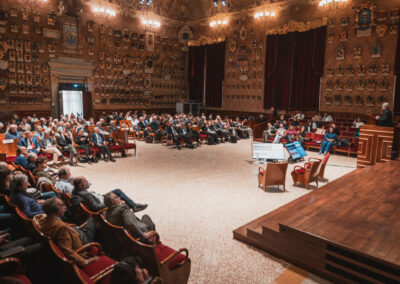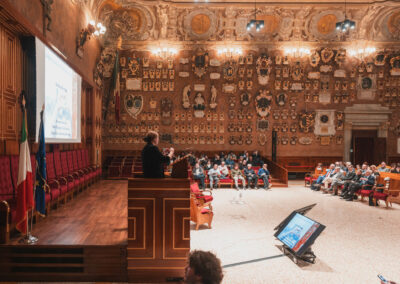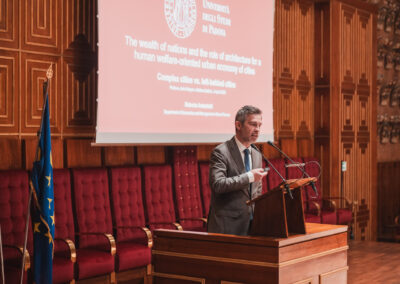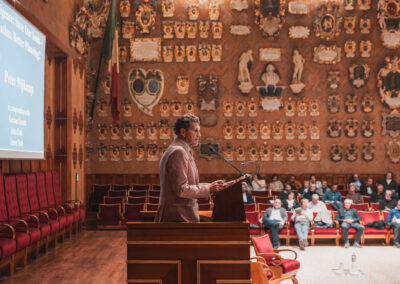On Friday, April 4, the University of Padua hosted a landmark international symposium titled “The Wealth of Nations and the Role of Architecture for an Urban Economy Focused on Human Well-Being,” organized by the Italian National Council of Architects, Planners, Landscapers and Conservators (CNAPPC). The event featured Nobel Prize-winning economist Paul Krugman, who delivered a powerful and timely keynote address.
A Thoughtful Institutional Opening
The symposium began with institutional greetings from key figures in academia and government: Antonio Parbonetti (Vice-Rector of the University of Padua), Paola Valbonesi (Director of the Department of Economics and Business Sciences “Marco Fanno”), Andrea Micalizzi (Deputy Mayor of Padua), and Roberto Righetto (President of FOAV and the local Order of Architects). Massimo Crusi, CNAPPC President, formally opened the event, followed by remarks from Senator Roberto Rosso, rapporteur of the new Urban Regeneration Law.
Paul Krugman: “Stable Cities, Stable Nations”
At 3:15 PM, Paul Krugman took the stage with a lecture titled “On the Stability of the Deplorables,” reflecting on the economic structures that can either deepen urban inequality or unlock inclusive growth. Krugman emphasized the need for urban planning that places human dignity, accessibility, and local resilience at the center of economic development.
Urban Challenges and Future Visions
The first thematic session, led by Catherine Gall (Executive Director of ETI Research, Sorbonne Paris), addressed contemporary struggles in urban life and governance:
- Carlos Moreno (Université Paris 1 Panthéon-Sorbonne) explored the power of proximity as a pillar for sustainable and inclusive cities.
- Karima Kourtit (Open University, Netherlands) reflected on the emotional and social bonds that shape cities in crisis.
After a short coffee break, the second session, titled “What Kind of Cities Do We Want to Live In?”, opened with a series of thought-provoking talks:
- Philippe Rahm (Philippe Rahm Architects) made a compelling case for bioclimatic architecture.
- Robin Wells (Princeton University) examined principles of urban equity.
- Roberto Antonietti and Peter Nijkamp contributed insights on forgotten cities, climate resilience, and the global role of local policy.
- The session concluded with reflections from Giuseppe Cappochin, former CNAPPC President.
A Forum with Impact
With over a hundred in-person attendees and a wide online audience, the event marked a significant moment in the evolving conversation about sustainable, human-centered urbanism. It made clear that architecture, economics, and policy must work hand in hand to shape cities that are resilient, inclusive, and designed for everyday life.

